Programming C#. Building .NET Applications with C#. 4th Edition Jesse Liberty
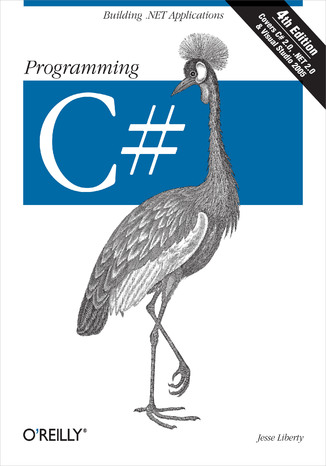



- Autor:
- Jesse Liberty
- Wydawnictwo:
- O'Reilly Media
- Ocena:
- Stron:
- 672
- Dostępne formaty:
-
ePubMobi
Opis
książki
:
Programming C#. Building .NET Applications with C#. 4th Edition
The programming language C# was built with the future of application development in mind. Pursuing that vision, C#'s designers succeeded in creating a safe, simple, component-based, high-performance language that works effectively with Microsoft's .NET Framework. Now the favored language among those programming for the Microsoft platform, C# continues to grow in popularity as more developers discover its strength and flexibility. And, from the start, C# developers have relied on Programming C# both as an introduction to the language and a means of further building their skills.
The fourth edition of Programming C#--the top-selling C# book on the market--has been updated to the C# ISO standard as well as changes to Microsoft's implementation of the language. It also provides notes and warnings on C# 1.1 and C# 2.0.
Aimed at experienced programmers and web developers, Programming C#, 4th Edition, doesn't waste too much time on the basics. Rather, it focuses on the features and programming patterns unique to the C# language. New C# 2005 features covered in-depth include:
- Visual Studio 2005
- Generics
- Collection interfaces and iterators
- Anonymous methods
- New ADO.NET data controls
- Fundamentals of Object-Oriented Programming
Liberty also incorporates reader suggestions from previous editions to help create the most consumer-friendly guide possible.
Wybrane bestsellery
Jesse Liberty - pozostałe książki
O'Reilly Media - inne książki
Dzięki opcji "Druk na żądanie" do sprzedaży wracają tytuły Grupy Helion, które cieszyły sie dużym zainteresowaniem, a których nakład został wyprzedany.
Dla naszych Czytelników wydrukowaliśmy dodatkową pulę egzemplarzy w technice druku cyfrowego.
Co powinieneś wiedzieć o usłudze "Druk na żądanie":
- usługa obejmuje tylko widoczną poniżej listę tytułów, którą na bieżąco aktualizujemy;
- cena książki może być wyższa od początkowej ceny detalicznej, co jest spowodowane kosztami druku cyfrowego (wyższymi niż koszty tradycyjnego druku offsetowego). Obowiązująca cena jest zawsze podawana na stronie WWW książki;
- zawartość książki wraz z dodatkami (płyta CD, DVD) odpowiada jej pierwotnemu wydaniu i jest w pełni komplementarna;
- usługa nie obejmuje książek w kolorze.
Masz pytanie o konkretny tytuł? Napisz do nas: sklep@helion.pl
Książka drukowana





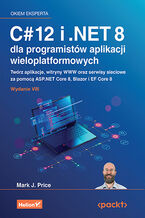

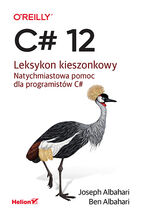
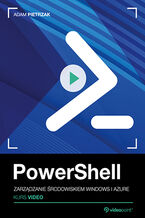
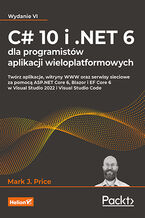
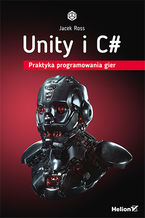
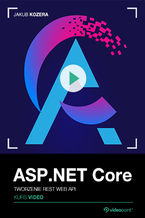

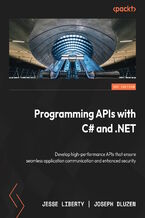

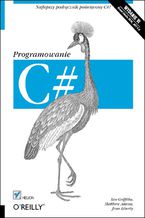
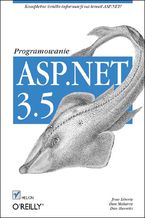
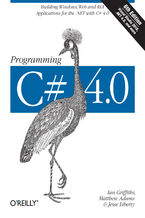
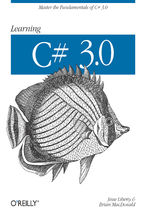
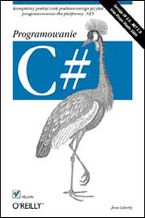





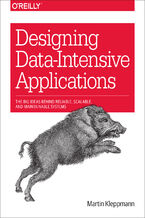
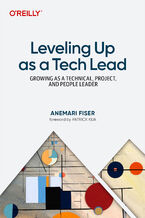
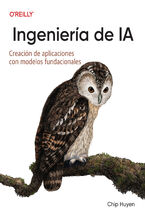
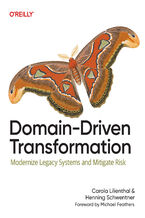

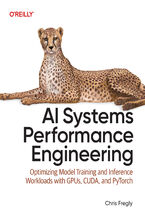
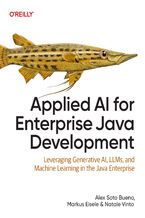
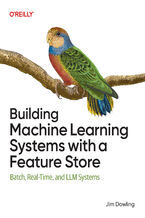
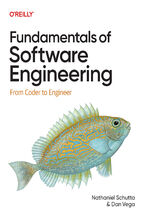
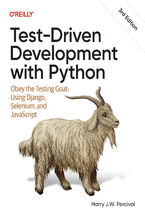



Oceny i opinie klientów: Programming C#. Building .NET Applications with C#. 4th Edition Jesse Liberty
(0)